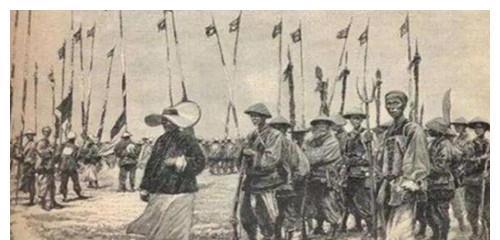In 1912, Empress Longyu announced the "Edict of Abdication of the Qing Emperor", ending the feudal imperial system that lasted for more than 2,000 years, and from then on to the republic, opening a new historical era. However, at this time, China was even more turbulent, and the great powers were dividing Up China's interests step by step, especially Japan, and never stopped peeping at China.

In 1931, Japan launched the "918" Incident, which launched a 14-year invasion of China and continuously plundered China's resources. But Japan's atrocities in China have attracted the world's attention. Therefore, the US government and the United Kingdom began to launch an "oil embargo" on Japan, hoping to stop Japan's foreign war through restrictions on oil exports.
At that time, eighty percent of Japan's domestic oil was imported through the United States, if there was no oil supply, in the face of the rapidly changing war situation, it was bound to drag Japan into the quagmire of war, and Japan at this time was even more anxious like ants on a hot pot.
On December 7, 1941, the Japanese Navy's aircraft carrier fleet sent 350 sorties to attack the U.S. Pacific Naval Base at Pearl Harbor, and without any U.S. defense, Japan sank four U.S. battleships and two destroyers, destroying 188 U.S. aircraft, including 2,400 U.S. soldiers killed and 1,250 wounded.
In such a sneak attack, the Japanese tactics were successful. But Japan was undoubtedly a strategic failure and hastened its demise. The next day, President Roosevelt, led by the United States, officially declared war on Japan. Without gaining any benefits from the United States, Japan formulated the "No. 1 Battle Plan" and began to gather heavy troops to attack China.
Attempting to sabotage air bases in southwest China and open up a transport route to Southeast Asia, the Japanese could provide logistical replenishment on land in the face of increasingly unstable sea traffic. As a result, the Japanese army began to gather 400,000 heavy troops to invade Changsha, and from September 1939 to February 1942, it fought three large-scale battles with our army.
At that time, Xue Yue, the defender of Changsha, created his own "Heavenly Furnace Tactics", taking advantage of Hunan's unique geographical advantages to severely damage the Japanese army. After three battles of Changsha, our army successfully annihilated 110,000 Japanese troops, and the victory of this battle directly led to the collapse of the Japanese Tojo Hideki government and changed the strategic process of Japan. It has also benefited the camp of the world anti-fascist war, greatly enhanced our country's position in the world anti-fascist camp, and greatly protected the security of China's southwest rear area.
Hunan has been a strategic place since ancient times, according to records, in 202 BC, Liu Bang established the Western Han Dynasty, in order to stabilize the world, he sealed 7 princes of the opposite sex, with the development of time, the power of these princes of the opposite sex has become larger and larger, and has completely threatened the rule of the king, in this context, Liu Bang found various excuses to kill 6 of the princes of the opposite sex, but did not attack Wu Rui in Changsha, why is this?
The reason was that around the State of Changsha, there was also a South Vietnamese state (present-day Guangzhou) with strong military strength, and in order to maintain the strategic position of Hunan, Liu Bang had to choose to win over and prevent Wu Rui from defecting, so he sent his own close minister LiCang to Changsha to supervise Wu Rui, which shows how important Changsha's strategic position is.
In addition to Changsha's significant strategic position, it is Also China's granary, and Hunan people are also very powerful, not only a lot of famous generals, but also a lot of literati and inkers, and now Hunan is a big change.